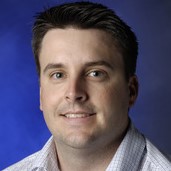Senior Health Masterclass (Online)
Unit 2: Peers and family as resources for healthy living
Monday 22 November 2021
|
Time
|
Topic
|
Presenter
|
|
9:00am
|
Instructions for Spatial Chat
(Online Group Platform)
|
ASN
|
|
9:10am
|
Welcome – setting the scene for the day
|
Dr Hugh Shannon, QUT,
|
|
9:15am
|
Elective Topic 1: Alcohol
Lecture followed by Q&A session
|
To be advised
|
|
10.15am
|
BREAK
|
|
|
10.45am
|
Elective Topic 2: Body Image
Lecture followed by Q&A session
|
To be advised
|
|
11.45am
|
Applications
Participants will engage in activities that can be transferred into the classroom
|
Dr Hugh Shannon QUT,
|
|
12.45pm
|
BREAK
|
|
1.15pm
|
Ideas to Action
Reflective thinking, sharing strategies and planning
|
Group work
|
|
2.45pm
|
Wrap up of day
|
Dr Hugh Shannon, QUT
|
Elective Topic 1: Alcohol
Protecting younger people from alcohol related harms.

Drinking is part of Australia’s culture and adolescents have traditionally sought access to alcohol as a badge of adulthood. Younger people are particularly vulnerable to alcohol related harms. They are experiencing profound physical and emotional changes, they are heavily influenced by role models, they may engage in increased risk-taking, and their brains are still developing and therefore sensitive to even low amounts of alcohol. Parents, policymakers, schools and communities can all act to protect younger people from alcohol related harms.
Laura Bajurny has worked in the alcohol and other drug space for over 5 years after completing her master’s degree in social policy at the University of Melbourne. In addition to her policy and advocacy work, Laura is passionate about educating the community on alcohol and drug use and tackling the stigma that holds many people back from seeking help.
Elective Topic 2: Body Image
Why do I feel this way about my body image? The role of Sociocultural perspectives and self-compassion.

The aim of this presentation is twofold. First, the introduction of the tripartite influence model to help explain the links between peers, (social) media and family – and the body concerns specific to each gender. This model has been well-established cross-culturally and helps us better understand the factors that maintain these links, in adolescents, such as comparison processes and internalisation of appearance ideals. I will also introduce you to a second theoretical perspective that works in combination with the tripartite influence model and that is objectification theory. Finally, I will discuss the role that self-compassion plays in mitigating some of these links and strengthening a positive body image in young people.
Dr Veya Seekis is a lecturer at the School of Applied Psychology within Griffith Health. Veya conducts research in the areas of social, developmental, and health psychology. Her research focuses on three keys areas (a) the sociocultural influences (e.g., media, peers, family) on young peoples’ body image, (b) the objectification processes operating in young people and (c) the role that self-compassion plays in preventing negative body image as well as promoting positive body image.
Elective Topic 2: Body Image
Youth body image and everyday embodiment

This presentation introduces a sociological approach to youth body image, emphasising the roles of social and cultural norms, roles, and practices of this complex issue. I introduce the framework of 'everyday embodiment', based on qualitative research with young people, to understand the ways young people's understandings of bodies are shaped through the various conditions of their lives: including socialities (including relationships with friends, family, peers, and digitally mediated lives on social media), youth biographies (conditions of study, work, finances), and body work practices (going to the gym, ‘wellness’ regimes, sports, body modification). This framing argues all young people have a 'body image', and provides a broader social and cultural understanding of the dynamics young people must navigate in living comfortably in their own skin.
Dr Julia Coffey is a Senior Lecturer in sociology in the School of Humanities and Social Sciences at University of Newcastle, Australia. Her research is in the field of health sociology, with a focus on youth, the body, and gender. Julia has also worked on areas related to health and youth in education and development. She has published on young people’s body work practices and identity, health and the body, and pedagogy. She is especially interested in the ways body work practices are shaped by health and gender ideals and theories of the body.
Masterclass Facilitator

The day will be chaired by Dr Hugh Shannon from QUT. Dr Shannon is a HPE Lecturer in the School of Exercise and Movement Sciences, Queensland University of Technology. He completed a PhD in Health Education and Health Literacy at QUT and a BScApp(HMS-Ed) undergraduate degree with honours from The University of Queensland. Hugh is a qualified secondary and primary teacher, with experience teaching HPE, Senior Physical Education, Senior Health Education and Science in the Queensland secondary school system. He is a member of the ACHPER National - Active and Health Schools Committee and the Health Education state panel managed by the Queensland Curriculum and Assessment Authority.